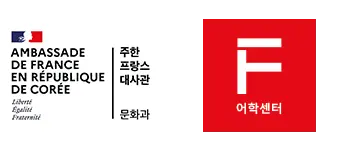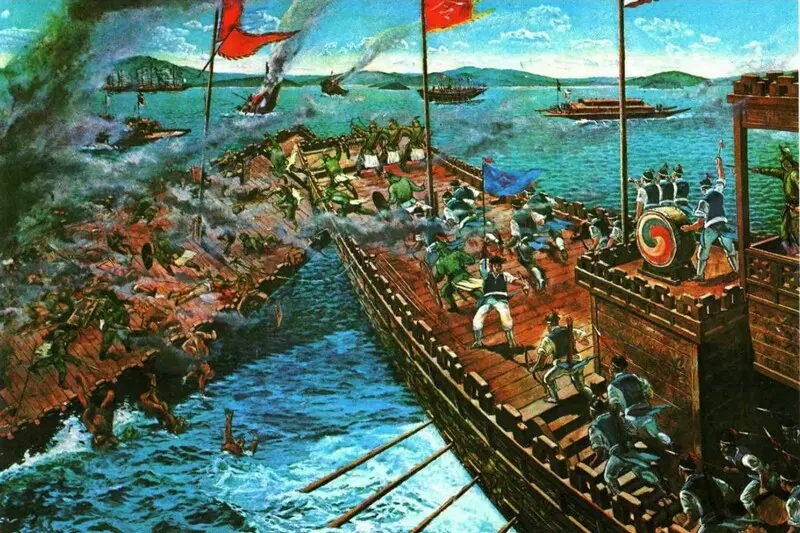KIM Seo-bong (1930-2005). Résistance des Sambyŏlch’o contre les Mongols. 1975
Date et heure
Jeudi 20 avril 2023 à 18h
Lieu
Grand Conference Room (Room number 310), the Asiatic Research Institute, Korea University
Plus d’information
Quelques réflexions sur Pyŏlch’o et Sambyŏlch’o : histoire, historiographie et traductions
Au xiiie siècle, le ministre militaire Choe U (r. 1219-1249) créa un corps de sécurité publique appelé Ya Pyŏlch’o, dont le développement formera plus tard les Sambyŏlch’o ou « Trois Gardes ». Organisée comme une sorte d’armée privée aux ordres de Choe U, cette troupe intervenait à l’origine pour maintenir l’ordre public, mais fut aussi engagée contre les envahisseurs mongols. Les officiers des Sambyŏlch’o renversèrent en 1259 le dernier représentant du clan Ch’oe, et restaurèrent le pouvoir royal. Cependant, les progrès de la normalisation diplomatique entre les Mongols et le roi de Corée réclamèrent la mise au pas et la reddition des Sambyŏlch’o, dont les chefs refusèrent la soumission. Si l’histoire est bien connue, la qualification de ce mouvement, révolte ou résistance, est mal tranchée. D’autre part, la traduction de pyŏlch’o demande une attention particulière du fait de la diversité des réalités décrites par le terme.
Laurent Quisefit
Chercheur associé, UMR 8173, Chine, Corée, Japon (CNRS, EHESS, Université Paris-Cité)
Après des études de coréen à l’INALCO, et un master du Centre d’Histoire de l’Asie Contemporaine de l’université Panthéon-Sorbonne, il a obtenu son doctorat en études asiatiques à l’université Paris-Diderot. Il a enseigné la culture coréenne dans les universités françaises et publié de nombreux articles sur l’histoire de la Corée. Ses domaines de recherche portent sur le royaume de Koryŏ, le mouvement d’indépendance et la guerre de Corée.
_________________________________________________________________________________________________________
The March 2023 session of the “Seoul Colloquium in Korean Studies” organized jointly by the Seoul Center of the EFEO and RAS Korea will be held as an in-person event on Thursday April 20 in the Grand Conference Room (Room number 310), of the Asiatic Research Institute, Korea University, beginning at 6:00 pm.
Laurent Quisefit : Some comments on Pyŏlch’o and Sambyŏlch’o: history, historiography and translation
During the 13th century, the military minister Choe U (in power 1219-1249) established a public security corps called Ya Pyŏlch’o, the development of which would later form the Sambyŏlch’o or « Three Guards ». Organized in the form of a sort of private army under the orders of Choe U, this troop originally intervened to maintain public order, but was also engaged against the Mongol invaders. The officers of the Sambyŏlch’o overthrew the last representative of the Ch’oe clan in 1259, and restored royal power. However, the progress of diplomatic normalization between the Mongols and the Korean king demanded the bringing to heel and the surrender of the Sambyŏlch’o, whose leaders refused submission, preferring to continue the fight. The Three Guards then passed to the armed opposition (1270-1274). If the story is well known, the qualification of this movement, revolt or resistance, is unclear. On the other hand, the translation of Pyŏlch’o requires particular attention, due to the diversity of the realities described by the term.
Laurent Quisefit graduated in Korean language at the National School of Oriental Languages (INALCO) in Paris, then he got a PhD in Asian studies at Paris-Diderot University. He also holds a master’s degree in history from the Center for the History of Contemporary Asia of the Panthéon-Sorbonne University. Specialized in Korean history, he and taught Korean culture for several years in French universities. He has published many articles concerning the Koryŏ kingdom, the Independence movement, and the Korean War.
All who wish to participate must register in advance by sending an email to efeoseoul@hotmail.com
Take Exit 1 from Korea University subway station, turn right onto the footpath leading up onto the campus. Walk straight up the road past LG Posco Hall, the Business School and Main Library (all on the right hand side). The Asiatic Research Institute is the building next after the Library (http://oia.korea.ac.kr/listener.do?layout=itd_4_1 )
After 6 pm the front door of the Institute may be locked. If the door is locked, phone to the EFEO Seoul Center (02-921-4526) so that we can let you into the building.
Élisabeth Chabanol, Head of the Seoul Center, French School of Asian Studies/École française d’Extrême-Orient (EFEO)
Brother Anthony, President Emeritus, Royal Asiatic Society Korea

